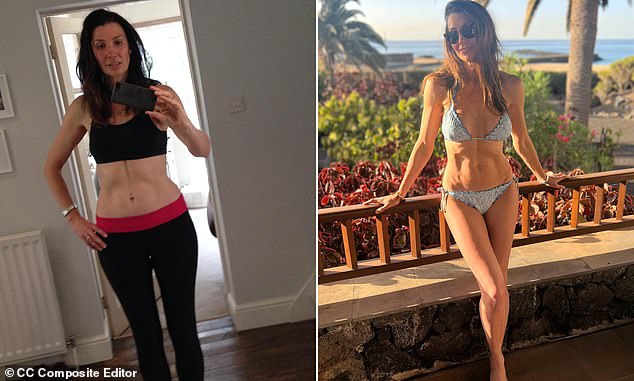A doctor who specialises in sleep medicine has highlighted the precise habits that are detrimental to a good night’s rest.
The only problem? In his experience, those with long-term sleep issues tend to resist acknowledging their poor sleep health habits – let alone trying to fix them.
Dr Christopher J. Allen, who regularly shares sleep health tips to his 167,000 Instagram followers, recently uploaded a post outlining the ‘advice I’d give you as a sleep doctor for a decade – if I wasn’t afraid of hurting your feelings’.
The Michigan-based doctor provided a 10-point list that offered a brief explanation on the reason behind everything from those dreaded middle-of-the-night wake-ups to the flawed notion of fixing a sleep debt.
1. No-Go on the Snooze Button
An alarm clock is a necessity for many of us to ensure we get to work or wherever we need to be on time.
But if you’re regularly hitting the snooze button to jag an extra few minutes of shut-eye, Dr Chris says you’re actually doing more harm than good.
‘Hitting snooze doesn’t buy you rest,’ he wrote.
‘It confuses your brain and guarantees morning grogginess.’

Dr Christopher J. Allen (pictured), a US doctor who specialises in sleep medicine, recently shared a post to his@SleepDrChris Instagram account calling out the 10 common poor personal habits that affect good quality sleep
2. That Busy Bedtime Brain
Laying your head down on a pillow should be a signal that your body is entering a period of rest and recuperation. However, many of us experience just the opposite, with a million thoughts racing around our minds as we try to fall asleep.
The harsh reality, according to the sleep doctor, this is indicative of underlying issues.
‘You’re not “wired at night” – you’re overstimulated, dehydrated, and living in a stress loop,’ he explained.
3. Wide Awake at 3AM
A similarly related issue is when some people find themselves suddenly wide awake in the early hours of the morning.
Again, Dr Chris says this is a result of unresolved underlying issues.
‘Waking up at 3AM isn’t random – it’s your stress hormones clocking in for the night shift,’ he said.

Hitting the snooze button to jag an extra few minutes of rest ‘confuses your brain and guarantees morning grogginess,’ according to Dr Chris
4. Falling Asleep in Seconds
On the flipside, there are people who proudly boast the ability to fall fast asleep within moments of closing their eyes.
Dr Chris cautioned that this can sometimes be mistaken as a sign of someone who sleeps well.
‘Falling asleep instantly isn’t a flex,’ he explained, adding that in some instances it could be ‘a red flag for exhaustion’.
5. Put Down the Coffee
It’s no surprise that a sleep doctor would have strong feelings about excessive intake of coffee or other caffeinated drinks.
Instead of demanding that you give it up entirely, Dr Chris gently suggests pausing to consider how continuously fuelling your body with stimulants affects your ‘nervous system’.

Dr Chris reminded his followers that a side effect of ‘doom scrolling’ prior to bedtime is the combination of the stimulating content and light emitted from the phone pushes our brain into ‘survival mode’ – making it difficult to rest afterwards
6. Doom Scrolling
While many of us know we shouldn’t be aimlessly staring at our phones in bed,Dr Chris explained that doom scrolling has the side effect of sending our body into fight or flight mode, thanks to the overstimulating content coupled with the light emitted by the phone.
‘You call it scrolling to relax, but your body calls it survival mode,’ Dr Chris said.
7. Playing Sleep Catch-Ups
Sleeping in on the weekends to ‘catch up’ on shorter sleeps during the week theoretically sounds like a way to fix a sleep debt. Unfortunately, Dr Chris explains that our bodies just aren’t wired that way.
‘Weekend sleep-ins don’t fix sleep debt – they just confuse your circadian rhythm and make Mondays hell,’ he said.
8. I Only Need A Few Hours
On the other hand, although some people may be convinced their bodies can function adequately on minimal hours of rest, the sleep doctor remains unconvinced.
‘You think you’re used to five hours – but your body is just quietly breaking down,’ he wrote.

Find yourself suddenly wide awake in the early morning? Dr Chris says: ‘Waking up at 3AM isn’t random – it’s your stress hormones clocking in for the night shift.’
9. Blame the Mattress
The doctor said he commonly hears patients suggest their old mattress may be the cause of their sleep woes. But more often than not, the doc says this isn’t the primary issue.
‘The reason you wake up tired isn’t your mattress – it’s your 11 PM work emails and 10 PM revenge scrolling,’ Dr Chris pointed out.
10. A Bedroom Sanctuary
Keeping a neat and tidy bedroom area can fall by the wayside amid our busy lifestyles.
But if you’re serious about improving sleep quality, Dr Chris recommends taking an honest look at your bedroom and ensuring it’s an inviting space for rest.
‘You can’t heal in the same environment that keeps you dysregulated,’ he explained. ‘Your bedroom is a mirror of your life.’
The doctor summed up that the secret to correcting ‘bad sleep’ is recognising that a myriad of poor personal habits around sleep is the likely cause. Only once that awareness is in place can you can take steps towards fixing it.
‘Your body isn’t lazy – it’s exhausted. Your brain isn’t broken – it’s begging for safety,’ he wrote.
‘You don’t have bad sleep. You have bad boundaries.’
The post attracted hundreds of likes and the comment section was awash with admissions of guilt about many of the habits Dr Chris described.
‘You see the problem with the last statement is I’m seeing this for the first time while scrolling at 2am,’ read one reply.
‘Watching this at midnight. Yes my sleep is fine I’m sure,’ another added.
Another laughingly replied: ‘You just gained a follower by putting me in my place very politely. This is definitely me.’








